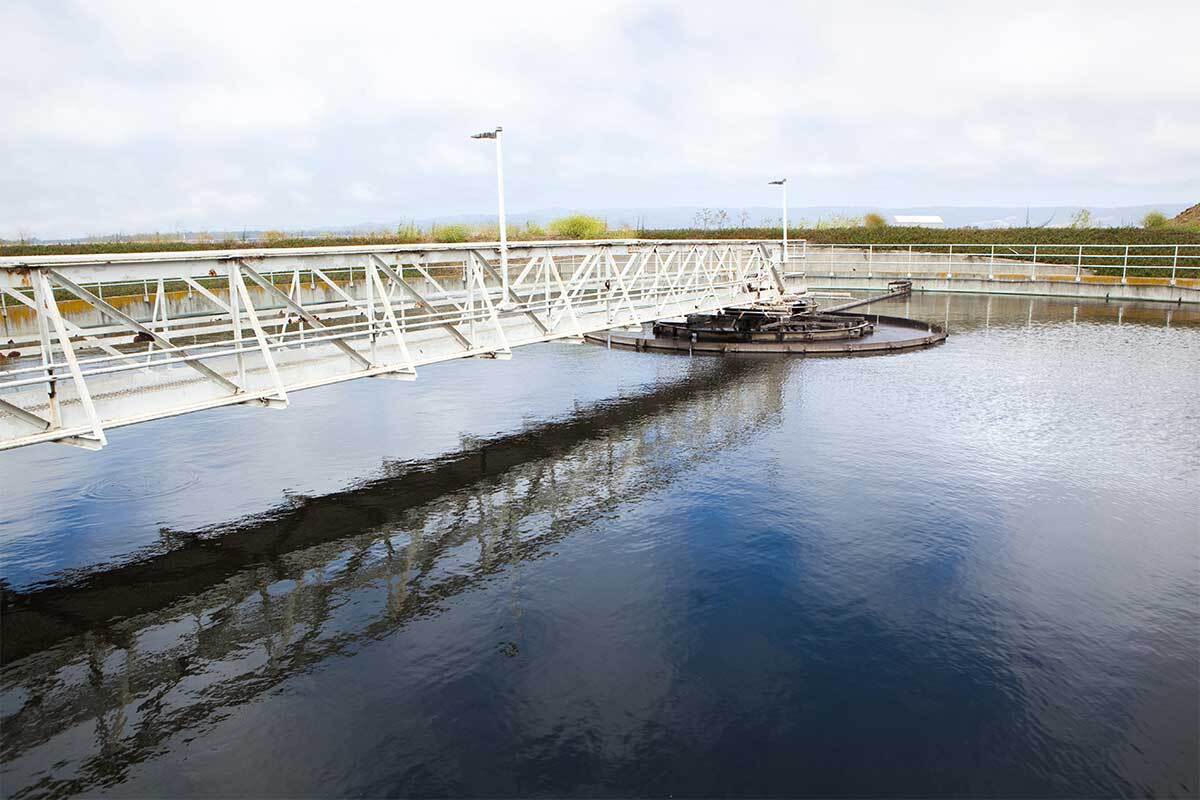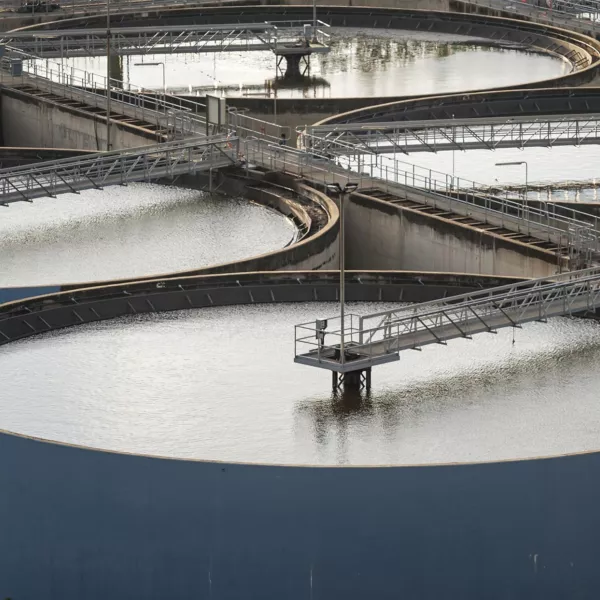Purifying wastewater of PFOS and other PFAS
Discovering per- and polyfluoroalkyl substances, or PFAS, in wastewater may be alarming for companies. These “forever chemicals” bioaccumulate in the environment and, once they enter the food chain, pose a threat to human health. PFAS is therefore subject to strict legislation globally, such as the persistent organic pollutants (POPs) regulations in the EU or the EPA regulation on PFAS in the USA. Companies must take swift action to protect the environment and human health, avoid action from the authorities, and preserve their good reputation. DESOTEC’s mobile sustainable filtration solutions are an effective answer, as demonstrated by this case study from Belgium concerning the end-of-pipe polishing of long-chain PFAS molecules.
The Problem
This chemical production company has facilities in several countries. At its main Belgian location, it operates a water purification system on behalf of several chemical firms that share the site.
After this treatment, the company found PFAS in the water of around 300 nanograms per litre. Of this, about 160 ng are perfluorooctane sulfanate (PFOS): one of the best-known long-chained type of PFAS molecules that are especially persistent. The water also contains less than 100 mg of organic components measured as total organic carbon (TOC).
As the treated water is discharged directly to the nearby river, it must have a high level of purity. Initially, the company faced a PFAS limit of 500 nanograms per litre, but this was later reduced to just 100 ng/l due to a regulation update in June 2023. PFOS limits were also cut from 100 ng/l to 20 ng/l.
As the company did not know where the PFAS originated, it sought an end-of-pipe polishing solution. It already had activated carbon filters on site for other applications, so conducted some pilot tests to estimate how long they would last before saturation.
Once it had established that activated carbon was a viable technology, the company approached DESOTEC. We were selected thanks to the quality of our competitive offer, willingness to engage and collaborate with the customer, and ability to see the bigger picture.


The Solution
Our solution consists of four Mobicon filters placed after the client’s water purification system. Two filters are placed in parallel at the front, and behind each is a second filter.
The first filters are filled with a standard carbon grade, ORGANOSORB plus, to adsorb the organic components from the wastewater flow. The second filters are filled with our high-performance agglomerated carbon grade, ORGANOSORB 10AA, to adsorb the long-chain PFAS.
This set-up reduces costs for the customer as it prevents the high-performance agglomerated carbon grade from becoming saturated with organic pollutants other than PFAS.
The water flow to each pair of filters is restricted to 50 m³/ h. This allows for a minimum of 30 minutes’ contact time with the activated carbon, which is optimal to adsorb PFOS.
Once the system was in place, we discovered that the build-up of suspended solid particles was creating slip in the system, causing pressure to rise and restricting water flow.
Therefore, a few months later, we placed a sand filter to protect the activated carbon filters from clogging by removing solid particles. This improved its efficiency.
The Results
The client is now fully compliant with the new lower PFAS limits. With a reliable solution in place, it has turned its attention to tracing the source of the PFAS, which has turned out to be mainly groundwater due to historic contamination, and is considering how best to address this in the longer term.
The client carries out measurements after both the first and second filters to determine when to exchange them. The front filters, saturated with organics, last 1-2 months. The second filters, saturated with PFAS, last 4-5 months.
After swift exchange, DESOTEC transports the closed saturated filters away from the customer’s site to our own facilities for analysis and treatment if possible. There, we measure the level of PFAS and PFOS adsorbed on the carbon.
If PFAS levels are too high, we are not allowed to reactivate the carbon and must send it to an external specialised company for incineration. According to the EU POPs regulation, the limits are 50 ppm for PFOS, and 1 ppm for two other types of PFAS: perfluorooctanoic acid (PFOA) and perfluorohexanesulfonic acid (PFHxS).
For this customer, analyses confirmed the PFAS concentration on the spent carbon was below the POPs regulation limits, so we can guaranty that the waste coming from our clients will be treated in full compliance with the POPs regulation. The thermal treatment destroys PFAS completely by breaking down the molecules, reducing them to their elemental building blocks such as water, CO2 and hydrogen fluoride.
The gases and impurities generated by this process, including the hydrogen fluoride which is formed during the PFAS destruction are neutralised via our flue gas treatment, making sure all contaminants are destroyed. DESOTEC takes the utmost care to ensure that no PFAS is emitted in the reactivation process, and carries out multiple measurements to ensure this is the case.
The reactivated carbon is completely free of pollutants and suitable for reuse for high-quality filtration. This circular approach drives down costs and cuts the amount of virgin carbon used, boosting sustainability and helping our customers meet their green goals.
Contact DESOTEC today
If you are one of the many companies who encounter PFAS in their wastewater, DESOTEC is here for you. Contact our team of engineers today to discuss how our sustainable mobile filtration solutions could work for you.
Contact our expertsContact DESOTEC today
If you are one of the many companies who encounter PFAS in their wastewater, DESOTEC is here for you. Contact our team of engineers today to discuss how our sustainable mobile filtration solutions could work for you.
Contact our experts-
Restricted Chemicals
Firms handling restricted chemicals need reliable solutions. Our filters treat POPs, PFAS, SVHC and CMR chemicals from air and water in a safe and sustainable manner. -
Waste and wastewater management
Sustainable air and water purification for waste management and recycling to protect our environment and control odours. -
Our filtration solutions
We offer a wide range of filter models and carbon grades to suit your industrial water or air purification requirements.


